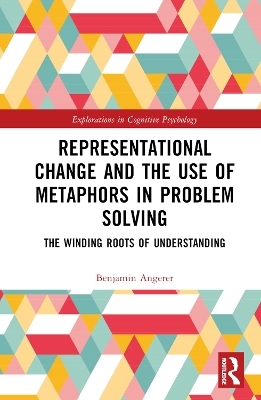
Representational Change and the Use of Metaphors in Problem Solving
The Winding Roots of Understanding
Seiten
2023
Routledge (Verlag)
978-1-032-32136-3 (ISBN)
Routledge (Verlag)
978-1-032-32136-3 (ISBN)
This book addresses a longstanding impasse in problem solving research: if structured mental representations of problems are required for solving them, how do those arise and, if needed, change? The book argues that established theories underestimate this question due to methodological requirements.
Proposing to momentarily suspend these requirements, including the focus on well-defined puzzle tasks, the book suggests to alternatively conduct exploratory studies with more complex, open-ended problems. It presents a qualitative case study of participants working for several days on a mental paper folding task designed to challenge them to construct their own representations. Charting their use of gestures, metaphors, and ever more complex descriptions, it carefully traces the chronology of their thinking. Combining in-depth empirical investigation with theory-building, the book proposes a framework of problem solving that goes beyond established models, accommodating associative, motivational, and affective factors.
This book will be of great interest to researchers, academics, and postgraduate students in the fields of cognitive science, psychology, philosophy of mind and cognition, and cognitive artificial intelligence.
Proposing to momentarily suspend these requirements, including the focus on well-defined puzzle tasks, the book suggests to alternatively conduct exploratory studies with more complex, open-ended problems. It presents a qualitative case study of participants working for several days on a mental paper folding task designed to challenge them to construct their own representations. Charting their use of gestures, metaphors, and ever more complex descriptions, it carefully traces the chronology of their thinking. Combining in-depth empirical investigation with theory-building, the book proposes a framework of problem solving that goes beyond established models, accommodating associative, motivational, and affective factors.
This book will be of great interest to researchers, academics, and postgraduate students in the fields of cognitive science, psychology, philosophy of mind and cognition, and cognitive artificial intelligence.
Benjamin Angerer is Research Associate at the Institutes of Philosophy, Computer Science, and Centre for Digital Education, University of Osnabrück, Germany.
1. Introduction 2. Problem-solving research and its struggle with representational change 3. Metaphors to the rescue? 4. The domain of iterated mental paper folding 5. A single case of learning how to represent folds 6. Back to theory 7. Associations, routines, and transient spaces: sketches of a new framework 8. Conclusion
| Erscheinungsdatum | 10.07.2023 |
|---|---|
| Reihe/Serie | Explorations in Cognitive Psychology |
| Zusatzinfo | 47 Tables, black and white; 67 Line drawings, black and white; 14 Halftones, black and white; 81 Illustrations, black and white |
| Verlagsort | London |
| Sprache | englisch |
| Maße | 156 x 234 mm |
| Gewicht | 453 g |
| Themenwelt | Geisteswissenschaften ► Psychologie ► Allgemeine Psychologie |
| Geisteswissenschaften ► Psychologie ► Verhaltenstherapie | |
| ISBN-10 | 1-032-32136-9 / 1032321369 |
| ISBN-13 | 978-1-032-32136-3 / 9781032321363 |
| Zustand | Neuware |
| Informationen gemäß Produktsicherheitsverordnung (GPSR) | |
| Haben Sie eine Frage zum Produkt? |
Mehr entdecken
aus dem Bereich
aus dem Bereich
Techniken der Verhaltenstherapie
Buch (2024)
Julius Beltz GmbH & Co. KG (Verlag)
CHF 48,95


